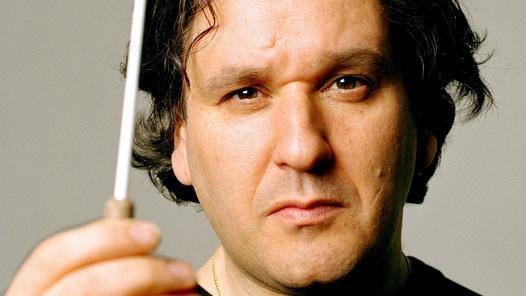It was a nice touch to preface Rachmaninov’s last Piano Concerto - No 4 – with a suggestion of the homesickness the composer undoubtedly experienced during his first years in American exile. But like so many immigrants to the US, the music he composed there more than hinted at easy assimilation into the American way. The Fourth Concerto is full of it. Actually it’s full of itself. And as Pappano and the orchestra launched themselves at the opening with a running jump and Leif Ove Andsnes, the unabashed soloist, planted the chordal opening theme with a sturdy virility, it was plain that the chivalrous (indeed reckless) dash of this music was in knowing hands.
If ever there was a show-off piece this is it and, to paraphrase Ira Gershwin, who could ask for anything more than a soloist and conductor whose integrated response to those tricky inner rubatos made piano and orchestra sound one? The fabulous Hollywood sheen of those LSO violins sweeping all before them with the overheated film noir climax of the first movement was something else. But then to have Andsnes alone with his melancholic, late-night extemporisation at the start of the second movement – well, you could almost write the script. Rachmaninov’s demons briefly emerge from the dark heart of this movement: for Pappano and Andsnes the shift of mood was seismic. But then everything about this performance was writ large – and let’s face it, that was exactly what the composer, with his big hands and craggy scowl and fabulous technique, didn’t just ask for but demonstrated.
This wasn’t an evening where the words “modest” or “retiring” were in anyone’s thoughts – leave alone Aaron Copland’s “common man” whose fanfare Pappano ripped from the LSO brass and timpani with kick-ass panache. If I’m honest (and this may be an implied criticism of Pappano) there didn’t seem to be as much interest as there might have been in the middle-range dynamics as this performance of the great Third Symphony unfolded. The softs were ethereally soft, the louds were stonking but between the two…
But then again which other London orchestra has the pioneering spirit and true grit of this piece in their blood like the LSO? It’s all those John Williams movie scores they’ve recorded. And where would they be without music like the prairie-pounding scherzo as a blueprint? Bring on the side-drum rim-shots.
So high, wide, handsome and, where needs be, unashamedly brash. But much as I thrill to those skyscraping climaxes, the passages that always stay with me are the sentimental trio of the scherzo, which Pappano turned into a real Stephen Foster moment, and the charming “dream pantomime” at the heart of the slow movement. But most of all, the inspiring “dawn chorus” preceding the final push of the finale where the entire spectrum of woodwinds from piccolos down to bass clarinet (and the LSO woodwind choir were superb here) build a luminous tapestry of sound in celebration of Copland’s “new deal”.
- Check out the LSO's official website
- Check out what's on at the Barbican













Add comment